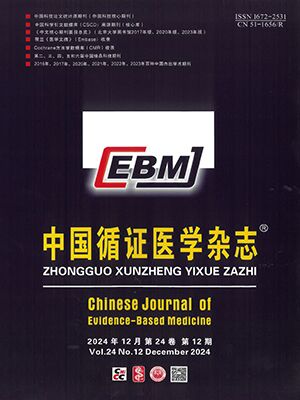Objective To assess the effectiveness and safety of photodynamic therapy (PDT) for patients with nonresectable bile duct cancer.
Methods Two reviewers independently searched The Cochrane Library (issue 4, 2006), MEDLINE (1966 to February 2007), CNKI (1994 to February 2007) and VIP (1989 to February 2007), respectively. The quality of included studies was assessed according to the guidance in the Cochrane Handbook of Systematic Reviews of Interventions.
Results Two randomized controlled trials involving 71 patients with nonresectable bile duct cancer met the inclusion criteria and were included. Both of these trials reported that the median survival time in patients who were treated with endoprostheses and PDT was longer than for those treated with endoprostheses alone (493 days versus 98 days, and 21 months versus 7 months, in the two trials respectively) One trial reported that the global quality of life in patients in the PDT with endoprostheses group was significantly better than that for the endoprostheses alone group: the difference of Karnofshy index between the two groups was 25.4 (14.4-36.3). The other trial reported no difference between the two groups. No severe adverse effects were observed during either trial.
Conclusion Current evidence demonstrates that PDT can improve the survival time of patients with nonresectable bile duct cancer, and reduce the burden of treatment. The treatment might increase biliary infectious rate, but this can be managed by antibiotics therapy. No severe adverse effects are observed. More randomized controlled trials, with large sample sizes, may lead to more accurate results.
Citation: REN Yangang,GUO Qiyong,LU Zaiming. Photodynamic Therapy (PDT) for Nonresectable Bile Duct Cancer: A Systematic Review. Chinese Journal of Evidence-Based Medicine, 2007, 07(6): 456-460. doi: Copy
Copyright © the editorial department of Chinese Journal of Evidence-Based Medicine of West China Medical Publisher. All rights reserved




